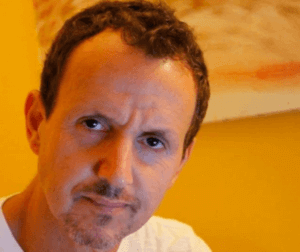
Rick Repetti: Indian Philosophy for Wisdom in Everyday Life, online via zoom
India is the land of yoga, meditation, Hinduism, Buddhism, Jainism, Sikhism, and virtually countless derivative traditions, lineages, and forms of philosophical, spiritual, meditative, and contemplative exploration. Various versions of these philosophies influenced the rest of Asia over the millennia, and in the contemporary era so many forms of yoga, meditation, and Buddhism have become almost as popular in the West as Starbucks. These philosophies mostly aim at self-transformation, inner peace, wisdom, and mental freedom. This course overviews the philosophical frameworks of five of the major philosophical traditions of India, and guides us through the practical techniques – several meditation and related practices – and ways of applying them in our daily lives.
- Week 1, two hours
Wisdom of Vedanta: The Path of Self-Inquiry. This session explores the Indian philosophy of nondualism (the idea that everything is One) and some of its variants, as well as meditative techniques designed to bring about the realization of nonduality.
- Week 2, two hours
Wisdom of the Bhagavad Gita. The Four Major Yoga Paths. This session overviews the three major yogas or paths to union with the One that are outlined in this beloved Indian philosophical scripture – the paths of knowledge (Gnana Yoga), devotion (Bhakti Yoga), and action (Karma Yoga), as well as an introduction to the fourth path discerned in its pages by Swami Vivekananda, which he termed the Royal path of meditation (Rajah Yoga), as well as some of the meditative techniques designed to bring about the realization of yogic union.
- Week 3, two hours
Wisdom of Rajah/Ashtanga Yoga: The 8-limbed Royal Path to Meditative Oneness. This session explores the Yoga Sutras of Patanjali, the leading Hindu treatise on meditation (which is what Swami Vivekananda had in mind in attributing Rajah Yoga to the Bhagavad Gita, and which outlines the path of Ashtanga Yoga or the Eight-limbed Path to yogic union), as well as some of the meditative techniques designed to bring about the realization of yogic union.
- Week 4, two hours
Wisdom of Jainism: The Six Blind Men and the Elephant. This session explores the Jain philosophical doctrines of Anekāntavāda (non-one-sidedness) and Syadvāda (the maybe doctrine) as reflected in the parable of the six blind men and the elephant, how these doctrines lead to and support ahimsa (the doctrine of non-violence) ), as well as meditative techniques designed to bring about the cultivation of these perspectives.
- Week 5, two hours
Wisdom of Buddhism: The Four Noble Truths & the 8-fold Path to Nirvana. This session explores the Buddha’s first and primary teaching, which scholars unanimously view as analogous to a medical analysis, as it offers the four major elements of a medical analysis, not of any particular pathology, but of the pathological elements of the human predicament: the diagnosis (all sentient beings experience unsatisfactoriness or suffer), its etiology (the cause: excessive attachment to pleasure, excessive aversion to pain, and excessive ignorance about these and the nature of experience), the prognosis (there is a cure: nirvana), and the prescription (the antidote is to reverse the cause by following an eightfold path). We will cover and practice key elements of the prescription.
10 hours, 10 credits, maximum 12 participants
Open to Auxiliary and Auxiliary Plus members
Program fee: $249
Auxiliary and Auxiliary Plus members enroll here
Cancellation policy: If APPA cancels the course, program fees will be 100% refunded. If a participant cancels their participation before the course starts, $200 will be refunded. If a participant cancels their participation during the course, the refund will be $200 minus $40 per week of attendance.

Rick Repetti is Professor of Philosophy at CUNY, APPA VP, Co-chair of the APPA Board of Examiners, Meditation Instructor for the Vervaeke Foundation, author of a number of books and dozens of articles on Buddhist philosophy, meditation, free will, and related topics, 50+ years meditation and yoga practitioner, and 3 decades meditation and yoga instructor.
